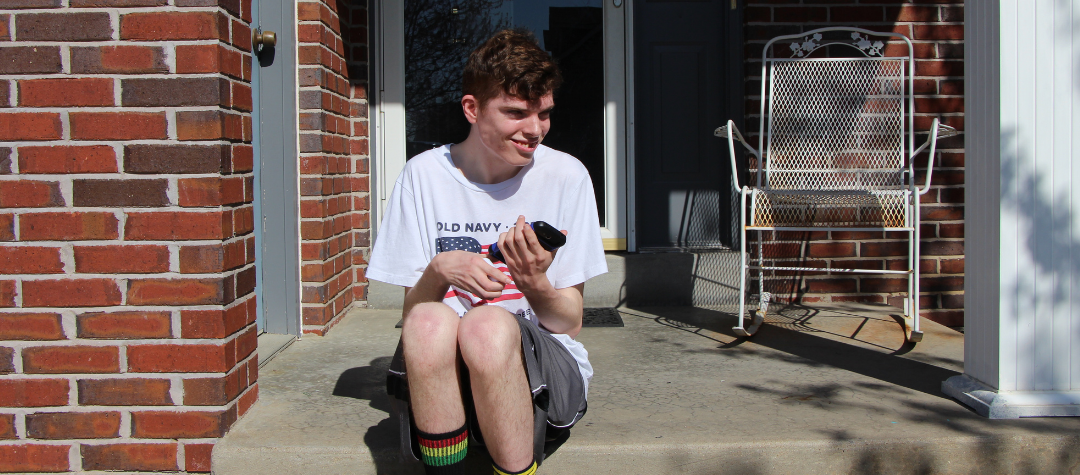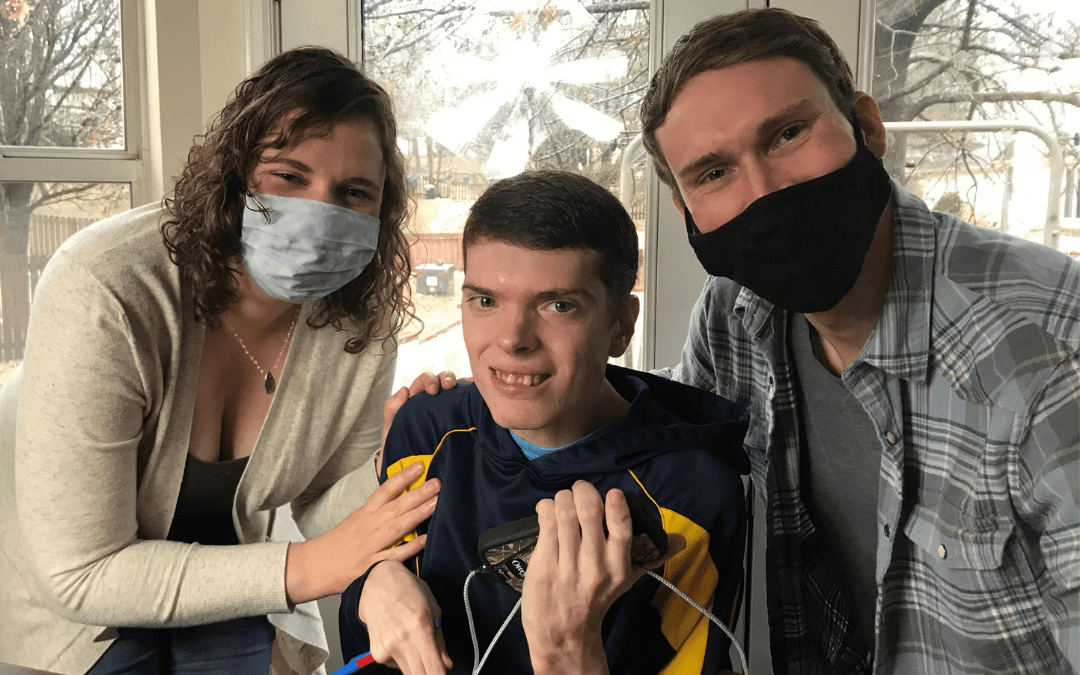Some photos used in this article were taken before the COVID-19 pandemic
Ellie knew she couldn’t be the only Emmaus family member that COVID-19 was affecting.
She flipped open her laptop and went to the Emmaus website. From there, she learned how Emmaus had implemented procedures to keep her brother and his Direct Support Professionals healthy and safe during the pandemic. While it broke her heart, she understood. Ellie saw story after story of people with disabilities finding success even in this time of struggle.
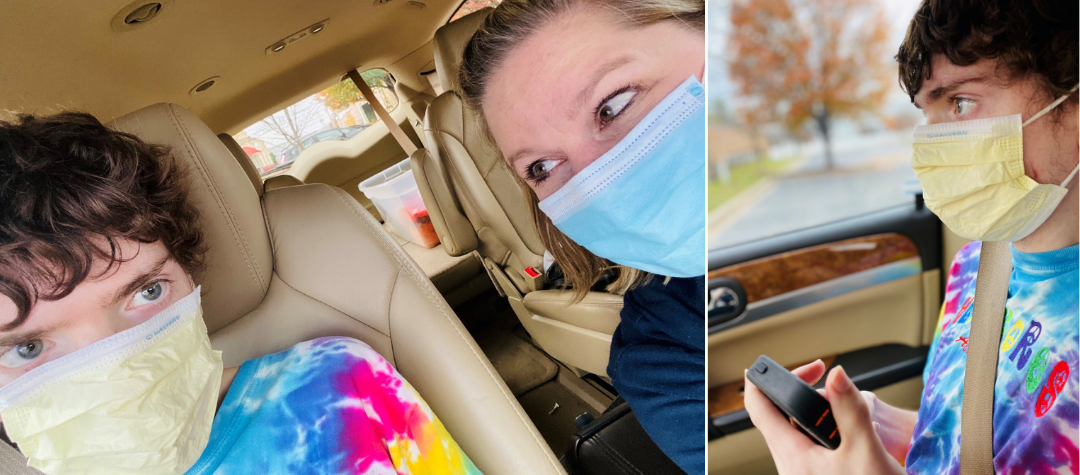
The dedication of team members and community support gave her encouragement. But what could she and her husband do? They were engineers, and there weren’t many options for the pair to jump in and help the world of developmental disabilities get back on track. Then it hit her.
“I’ll share Andrew’s story,” she thought to herself in an aha moment. In just a few clicks, she pulled up the most famous of social media platforms. She landed on the Emmaus profile, found the Create a Fundraiser feature, and started typing her brother’s story.
In the blink of an eye, she had gone from little sister to large supporter. We sat down with Ellie for a quick Q&A about fundraising for her family.
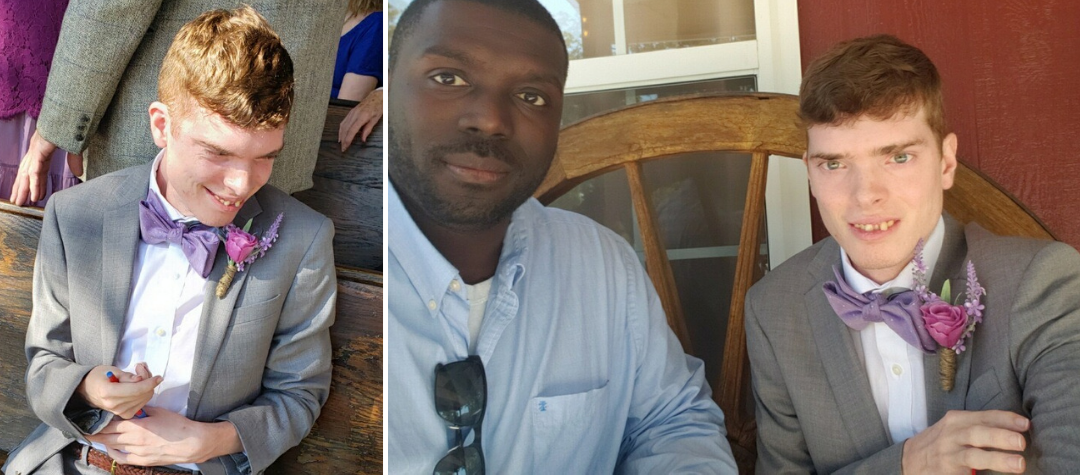
How easy was it to setup a Facebook Fundraiser?
It was very easy. All you have to do is select “Support Nonprofit” when creating a post and search “Emmaus Homes”. After that you can explain in your post that Emmaus is a wonderful nonprofit organization to donate too and why everyone should support it.
How has COVID impacted you and Andrew’s world at Emmaus?
Like anyone, both Andrew and I and our family have lost a lot of social time during the pandemic with not just each other, but with relatives, friends, and colleagues too. Even though this has been hard for my family and I, it’s especially been hard for Andrew since he’s nonverbal and feeds off of these social interactions on a day-to-day basis and having a constant schedule to lean on. Andrew especially loves going to his school day program and being with his school friends and teachers. Since Andrew is very schedule oriented and has lost stability from the absence of having school every day, he had lost a lot of balance to fall back on in his life.
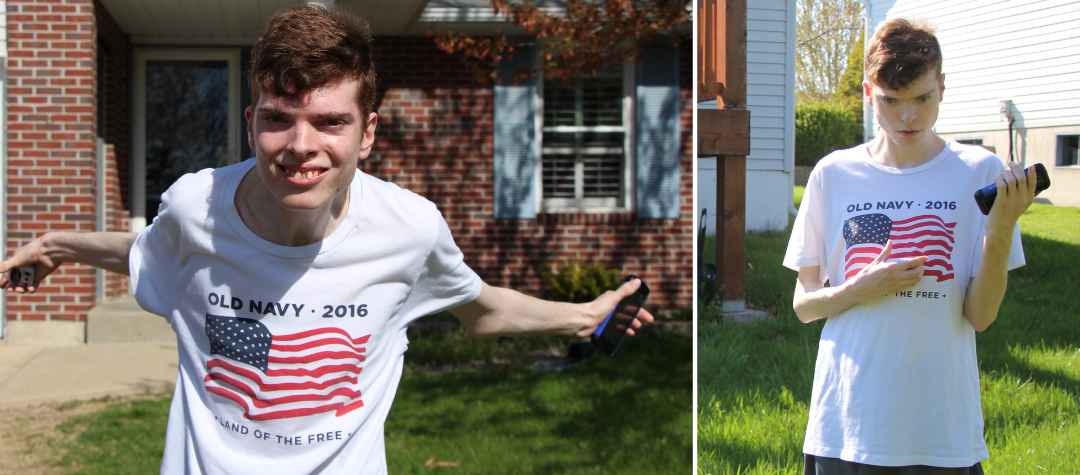
Have you noticed any differences in Andrew through the pandemic?
Andrew has always had a positive and uplifting attitude, but before the pandemic, my family and I were able to visit with him more often and take him on outings more often. We used to take him to do his favorite things more often like go on car rides, go to watch for trains, go to cardinals’ games, go camping during the spring, summer, and fall and many other things. But now during the pandemic, when our social interactions have been scarcer and just in the comfort of his own home, he still seems to be so much happier and grateful to see us, to the point where he is in tears of joy. He seems to cherish our family time more often since it’s been one of his only sources for social interactions outside of the wonderful, supportive Emmaus staff.
In what ways did you feel supported by Emmaus during COVID-19?
By Emmaus doing its best to create a bubble within Andrew’s home, to try and keep Andrew and all its clients and staff as safe and happy, as possible. And for going above and beyond providing Andrew with all that he needed. Andrew is a moving body and loves to keep busy and be on the go constantly. Emmaus has helped Andrew find his own schedule to fall back on in life during COVID-19 and this has comforted my and my family’s thoughts during this time of uncertainty.
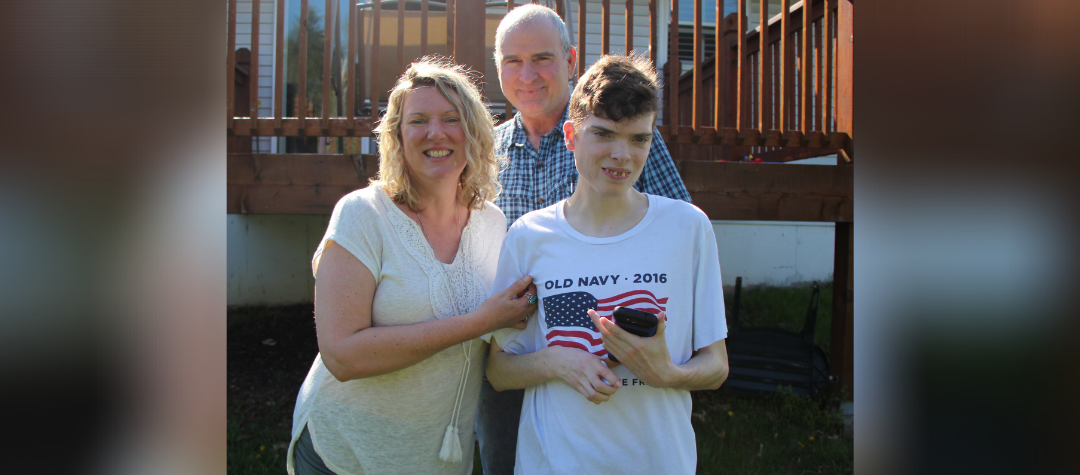
In what ways were the decisions made during COVID-19 challenging for your family?
Since Andrew is nonverbal, we can’t really explain to him why he isn’t able to go to school; visit with family and friends; or do some of his favorite things. Andrew especially thrives on in-person interactions because his reactions are based on social ques from sign language and body language. Video chatting with Andrew on phones has helped, but nothing is the same as in-person. Even though it was difficult, we did limit our visits and in-person interactions with Andrew as much as possible because we knew if he were to catch a severe case of Covid-19 that would cause him to go to the hospital, it would be extremely more difficult for Andrew and us. We didn’t want to take any risks.
What would Andrew’s life look like if DSPs weren’t there for him this past year?
Andrew cares greatly for his DSPs. When he lost going to the Center for Autism’s adult day program and visits from family members dropped to keep him safer in early 2020, his relationships with his DSPs became even more important. As said before, Andrew thrives on personal interactions, and Emmaus was able to provide that human need for him.
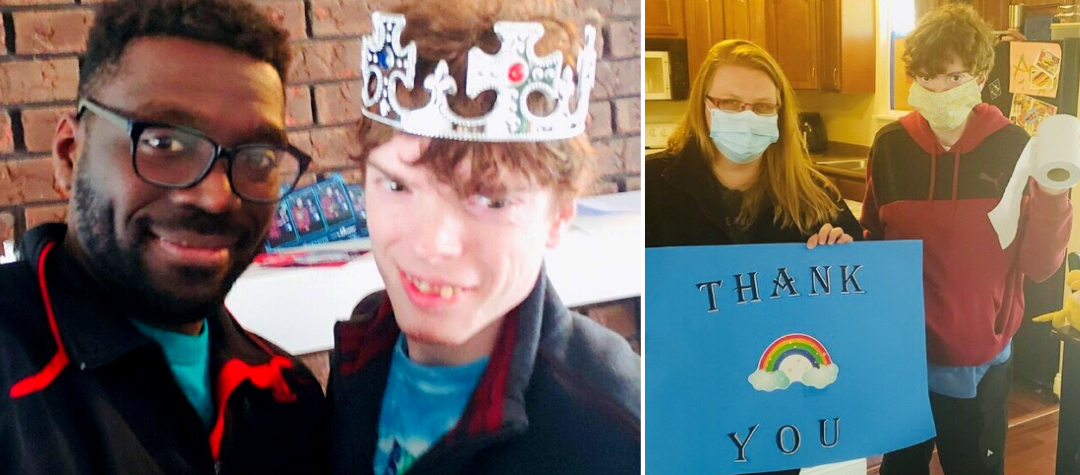
What would Andrew’s life look like if EMMAUS had to stop him?
We don’t even want to go there. Andrew loves his Emmaus community-based home. He is thriving in his independence. Without Emmaus, Andrew’s progress would revert back to where he was prior to moving into his Emmaus home. He is and we are so deeply grateful for Emmaus Homes!
What do you hope the money you raised goes towards?
I hope the money goes towards enhancing Andrew’s and many other clients’ experiences at Emmaus. Emmaus does a wonderful job at making sure that all of their clients feel supported and cared for during this time of uncertainty, whether it be throwing birthday parties, supporting hobbies, or giving topnotch care.
